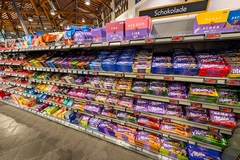
- Industry news
Industry news
- Category news
Category news
- Reports
- Key trends
- Multimedia
- Journal
- Events
- Suppliers
- Home
- Industry news
Industry news
- Category news
Category news
- Reports
- Key trends
- Multimedia
- Events
- Suppliers
EU spirits and wine sectors welcome potential Mercosur agreement relief from US tariffs

The EU alcohol industry welcomes the European Commission’s latest moves to seal the Mercosur deal with favorable outcomes for the spirits and wine sectors amid mounting global economic and geopolitical challenges.
European farmer groups and the agriculture sector have different views about the details of Mercosur. They fear its impacts will adversely affect the agri-food industry by creating unfair competition from lower-cost Mercosur products, risks to food safety and environmental standards, and potential negative impacts on animal welfare and climate change goals.
However, Spirits Europe and the European Committee of Wine Companies (CEEV) — which represents the EU’s wine and aromatized wine companies — have both announced how pleased they are with the latest details of the deal, but do warn that ratification is needed quickly.

Meanwhile, the European Commission is set to formally propose the deal today (September 3) for approval by the EU’s parliament and member states.
Pros and cons
The agreement will remove duties on some EU agriculture-based products, such as the 17% on wines and 20-35% on spirits. However, the EU will offer increased quotas, including 99,000 metric tons more beef, while Mercosur will give the EU a duty-free 30,000-ton quota for cheeses.
There are also EU quotas for poultry, pork, sugar, ethanol, rice, honey, maize, sweet corn, milk powders, and infant formula. In addition, it will recognize 350 Geographic Indications (GI) to prevent imitation of certain traditional EU foodstuffs like Parmigiano Reggiano cheese.
Relief from the impact of US-imposed tariffs
One of the main reasons both groups welcome the deal is that it offers relief from US President Donald Trump’s tariffs and benefits the competitiveness of European wines.
“At a time of increasing geopolitical and economic challenges, it is more important than ever for the EU to secure and diversify its trade relations with trusted partners. These agreements are a necessary step forward for European wine exports,” says Marzia Varvaglione, president of CEEV.
CEEV and Spirits Europe support these trade agreements partly because they will significantly improve access to Brazil and Mexico wine markets by removing tariffs, strengthening the protection of GIs, streamlining import procedures, and creating a more predictable and level playing field for the wine trade.
“Let’s be clear: Brazil and Mexico cannot replace the losses we face in the US market. However, they represent dynamic wine markets where European wines are highly valued and where we see important growing opportunities,” says Ignacio Sánchez Recarte, secretary general of CEEV.
“In the current time of tariff uncertainty, the new agreement will eliminate Brazil’s 27% duty on EU wines, a major drag on our companies’ competitiveness and growth.”
Spirits Europe adds that once implemented, both agreements will facilitate trade and expand consumer choice while also protecting more than 350 EU spirits GIs.
Reinforcing ties
Strong ties between the EU and Mexico, both significant spirit producers, will also be reinforced.
The European Commission also insists it wil bring new opportunities for food exports and have strong defences for EU farmers with agri-food exports to Mercosur expected to grow by almost 50%, as the deal reduces high tariffs on key EU agri-food products, notably wine and spirits (up to 35%), chocolate (20%), and olive oil (10%).
“After 25 years of negotiations, the EU-Mercosur agreement stands as one of the most ambitious trade deals ever concluded by the EU,” adds Spirits Europe director general Mark Titterington.
“For the EU spirits sector, it offers a critical opportunity to expand market access, secure strong protection for our Geographical Indications, and foster regulatory cooperation with Brazil, Argentina, Paraguay, and Uruguay. Every month of delay is a missed opportunity for growth and jobs in Europe’s rural communities, which is why we call for its swift ratification and entry into force.”
“We call on the European Parliament and the Council to swiftly advance the ratification process so that wine businesses and wine consumers on both sides can benefit from these historic agreements without delay,” adds Varvaglione.









